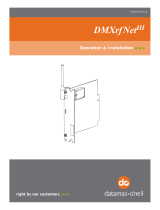
Each product and program carries a respective written warranty, the only
warranty on which the customer can rely. Avery Dennison Corp. reserves the
right to make changes in the product, the programs, and their availability at any
time and without notice. Although Avery Dennison Corp. has made every effort
to provide complete and accurate information in this manual, Avery Dennison
Corp. shall not be liable for any omissions or inaccuracies. Any update will be
incorporated in a later edition of this manual.
2006 Avery Dennison Corp. All rights reserved. No part of this publication
may be reproduced, transmitted, stored in a retrieval system, or translated into
any language in any form by any means, without the prior written permission of
Avery Dennison Corp.
Trademarks
Monarch, Monarch Net2, Smart Relay, 7411, 939, 9855®, and 9860 are
trademarks of Avery Dennison Retail Information Services LLC.
Avery Dennison® is a trademark of Avery Dennison Corp.
Microsoft, Windows, and NT are trademarks of Microsoft Corporation in the
United States and/or other countries.
Firefox is a trademark of Mozilla Corporation.
UNIX is a trademark of The Open Group.
Novell and NetWare are trademarks of Novell, Inc. in the United States and
other countries.
HP Jet Admin and HP Web Jet Admin are trademarks of Hewlett-Packard, Inc.
The Bluetooth trademarks are owned by Bluetooth SIG, Inc.
Netscape and Netscape Navigator are trademarks of Netscape Communications
Corporation in the United States and other countries. Netscape's logos and
Netscape product and service names are also trademarks of Netscape
Communications Corporation, which may be registered in other countries.
Excerpts reprinted from Wireless LANs Implementing High Performance IEEE
802.11 Networks, Second Edition with permission.
Excerpts reprinted from the TROY200 Installation and User’s Guide with
permission from Silex Technology America, Inc.
Avery Dennison Printer Systems Division
170 Monarch Lane
Miamisburg, OH 45342




















